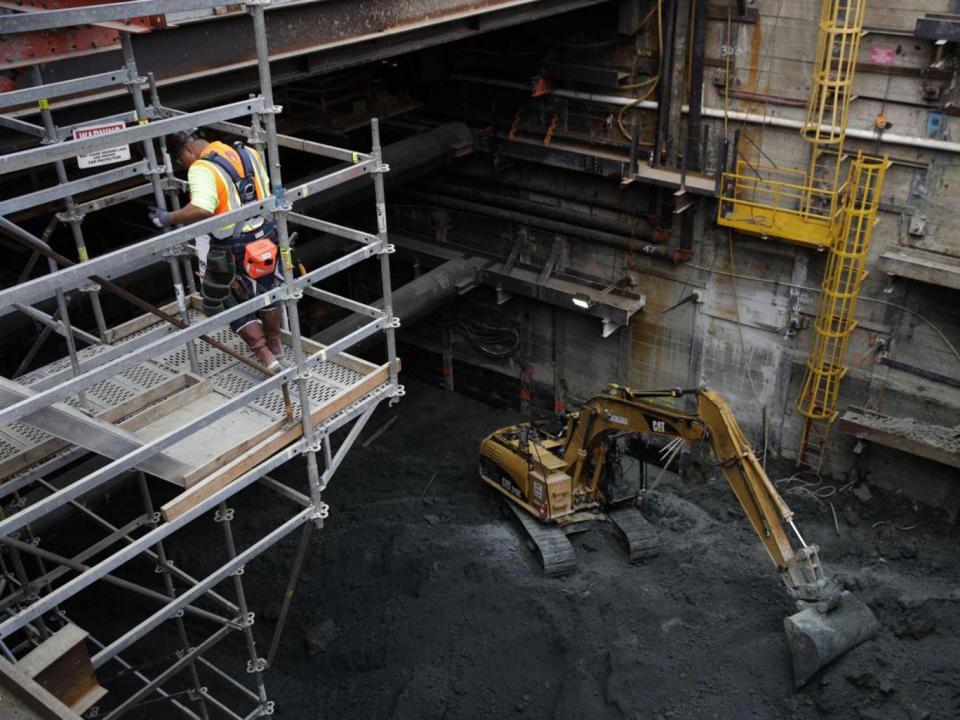Mammoth fossils discovered under Los Angeles subway by construction workers
Construction workers who are extending a subway line in Los Angeles’s west side have uncovered fossils from 10,000 years ago.
Since work on the extension began in 2014, fossilized remains have routinely turned up from creatures that roamed the grasslands and forests that covered the region during the last Ice Age.
The skull of a mammoth, a partial rabbit jaw, a mastodon tooth, a camel foreleg, bison vertebrae, and a tooth and ankle bone from a horse have all been discovered so far.
Ashley Leger, a palaeontologist, has been contracted by Los Angeles transportation officials to look at the site and said there is ample opportunity to get a “big find”.
“They’re making sure that they’re recovering every single fossil that could possibly show up,” Dr Leger said about her team of monitors.
“They call me anytime things are large and we need to lead an excavation.”
The biggest find so far came after 15 hours of excavation, when the team uncovered the skull of a juvenile mammoth.
“It’s an absolute dream come true for me. It’s the one fossil you always want to find in your career,” Dr Leger said.

The skull has been moved to the La Brea Tar Pits and Museum and Dr Emily Lindsey, the assistant curator of the museum, called it a “pretty remarkable find”.
It is the size of a chair and is especially rare because both tusks remain attached. The skull is being studied and is available for public viewing inside the museum’s glass-walled Fossil Lab.
California’s stringent environmental laws require scientists to be on hand at certain construction sites.
Palaeontologists have staffed all LA subway digs beginning in the 1990s, when work started on the city’s inaugural line, said Dave Sotero, spokesman for the Los Angeles County Metropolitan Transportation Authority.
“Our crews try to be as mindful as possible to help them do their jobs. We get out of their way,” Mr Sotero added.

 Yahoo News
Yahoo News 